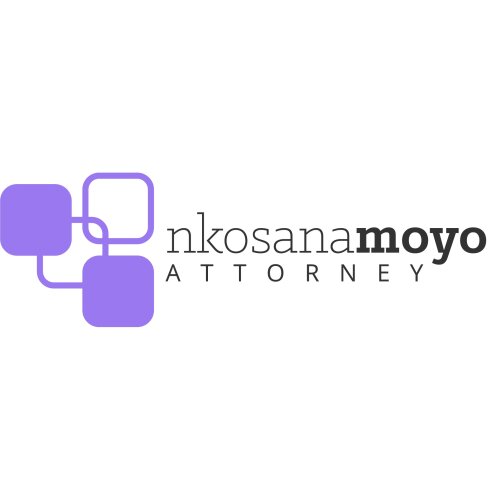Best Information Technology Lawyers in South Africa
Share your needs with us, get contacted by law firms.
Free. Takes 2 min.
Or refine your search by selecting a city:
List of the best lawyers in South Africa
About Information Technology Law in South Africa
The field of Information Technology (IT) in South Africa has been rapidly growing, reflecting the global trend of digital transformation and technological advancement. South Africa, being the most industrialized and technologically advanced country on the African continent, has embraced IT in various sectors including telecommunications, finance, healthcare, and education. With the increasing reliance on digital tools and platforms, South Africa has developed a robust framework of IT law to address issues such as data protection, cybersecurity, electronic transactions, and intellectual property rights within the digital domain.
Why You May Need a Lawyer
There are several situations where individuals and businesses in South Africa may require legal assistance in the field of Information Technology:
- Data Protection and Privacy Concerns: With the implementation of the Protection of Personal Information Act (POPIA), businesses must ensure compliance with data protection standards, requiring legal guidance.
- Intellectual Property Issues: Protecting software, trademarks, and copyrights in a digital context often requires specialized legal expertise.
- Contractual Disputes: Technology agreements, service contracts, and software licenses can lead to disputes that may need legal resolution.
- Cybersecurity Breaches: Legal advice is crucial in the aftermath of data breaches or cyberattacks to mitigate liability and manage regulatory repercussions.
- Compliance and Regulation: Navigating regulatory requirements in telecommunications and broadcasting might necessitate legal consultation.
Local Laws Overview
Several key pieces of legislation govern the IT sector in South Africa:
- Protection of Personal Information Act (POPIA): This law regulates the processing of personal information and is central to data privacy rights.
- Electronic Communications and Transactions Act (ECTA): Governs e-commerce and provides legal recognition for electronic documents and signatures.
- Cybercrimes Act: Addresses cybercrime and cybersecurity, detailing offenses and legal consequences.
- Copyright Act: Protects the rights of creators and is vital for software and digital content protection.
Frequently Asked Questions
1. What is the Protection of Personal Information Act (POPIA)?
POPIA is a comprehensive legal framework that aims to give effect to the constitutional right to privacy by safeguarding personal information when processed by lawful parties.
2. How can intellectual property be protected in the IT sector?
Intellectual property in IT can be protected through patents (for inventions), copyrights (for software), and trademarks (for brands and logos).
3. What constitutes a valid electronic contract under South African law?
Under the ECTA, electronic contracts are valid if they meet requirements such as the capacity to conclude agreements, a clear offer, and acceptance.
4. Are digital signatures legally recognized in South Africa?
Yes, digital signatures are recognized legally under the ECTA, provided they fulfill certain criteria such as being uniquely linked to the signatory and under their sole control.
5. What should businesses do in case of a data breach?
Businesses should take immediate steps to mitigate the breach, notify affected individuals and the Information Regulator, and assess compliance obligations under POPIA.
6. How does the Cybercrimes Act impact businesses?
The Act imposes obligations on businesses to report cybersecurity incidents and outlines offenses like unauthorized access or interception of data.
7. What role does the Information Regulator play in South Africa?
The Information Regulator is responsible for monitoring and enforcing compliance with POPIA and promoting access to information.
8. Can email be used as evidence in legal proceedings?
Yes, under ECTA, emails and other electronic communications are admissible as evidence in legal proceedings, subject to the rules of evidence.
9. How can a business ensure compliance with IT laws?
Businesses should conduct regular compliance audits, seek legal consultation, and implement robust data protection and cybersecurity measures.
10. Are there legal obligations for storing personal data outside South Africa?
Yes, POPIA imposes restrictions on cross-border data flows to ensure that personal information is adequately protected when stored or processed outside South Africa.
Additional Resources
Here are some valuable resources and organizations you can turn to for help with IT legal issues in South Africa:
- Information Regulator (South Africa): Enforces personal data protection laws.
- South African Law Reform Commission: Provides reports and recommendations on the development of IT law.
- Black IT Forum: Offers networking and advocacy for IT professionals.
- Technology Innovation Agency: Supports activities relating to technology innovation.
- South African Institute of Intellectual Property Law (SAIIPL): Can provide guidance on intellectual property matters.
Next Steps
If you find yourself in need of legal assistance in Information Technology, follow these steps:
- Identify the Legal Issue: Clearly define your legal problem or need, whether it's related to data protection, a contractual dispute, or another issue.
- Seek Legal Advice: Contact a lawyer specializing in IT law. Consider using resources such as the Legal Practice Council of South Africa to find a qualified attorney.
- Gather Necessary Documentation: Compile any contracts, correspondence, or evidence related to your case.
- Stay Informed: Keep updated with any changes in the legislative landscape; this will help in actively managing compliance and legal risks.
Engaging with an experienced lawyer early in the process can significantly impact the outcome, reducing risks and ensuring compliance with South African IT laws.
Lawzana helps you find the best lawyers and law firms in South Africa through a curated and pre-screened list of qualified legal professionals. Our platform offers rankings and detailed profiles of attorneys and law firms, allowing you to compare based on practice areas, including Information Technology, experience, and client feedback.
Each profile includes a description of the firm's areas of practice, client reviews, team members and partners, year of establishment, spoken languages, office locations, contact information, social media presence, and any published articles or resources. Most firms on our platform speak English and are experienced in both local and international legal matters.
Get a quote from top-rated law firms in South Africa — quickly, securely, and without unnecessary hassle.
Disclaimer:
The information provided on this page is for general informational purposes only and does not constitute legal advice. While we strive to ensure the accuracy and relevance of the content, legal information may change over time, and interpretations of the law can vary. You should always consult with a qualified legal professional for advice specific to your situation.
We disclaim all liability for actions taken or not taken based on the content of this page. If you believe any information is incorrect or outdated, please contact us, and we will review and update it where appropriate.
Browse information technology law firms by city in South Africa
Refine your search by selecting a city.
















